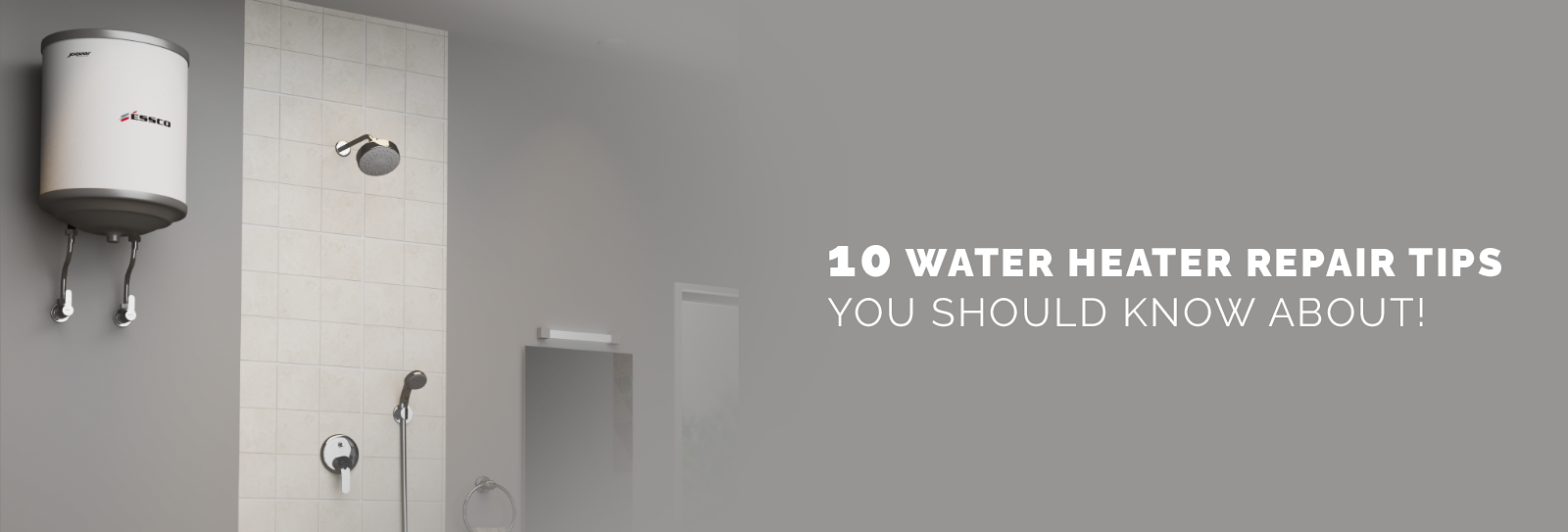The water heater silently plays an important role in our lives. We all deserve a good, hot shower after a long and tiring day, and nobody wants to encounter water heater issues and malfunctioning.
Imagine standing in front of the shower and suddenly feeling cold water on your body instead of hot. We have a few water geyser repair tips that are pocket-friendly and quicker than calling a plumber.
Repairing water heaters could be a pain, we don't want to call the plumber and ask them to come again and again for water heater servicing. To avoid that chaos, we can follow some easy, quick, yet guaranteed steps to help you avoid water geyser repair.
Water Heater Repair: Common Problems
1. No Hot Water
No hot water is a clear sign that there are some serious water heater issues and you need to repair it as soon as possible.
2. Little Hot Water
Some people might ignore it which they shouldn't. If you think that the heater is not warming enough water, then you should get it repaired as it could lead to no hot water in the future.
3. Leaks
One must not avoid drips or sprays of water coming out from the water heater or even rust or some white-coloured deposits, this could be a serious issue and needs to be fixed at the earliest.
4. Smelly water
The bad odour originates from the bacteria growing on the sediment inside the tank. Drain and clean the tank as soon as you smell a bad odour.
5. Unusual Sounds
Sounds like loud pops are unusual and can result in being torn down to become sediment. If you hear any unusual sound, ask a plumber to check it as it might be dangerous.
What To Do When The Water Stinks?
The main reason for the foul smell is bacterial decomposition or anode rods that make the water stink very badly. Getting rid of this smell is not a tough task. Gently clean the water tank with a diluted hydrogen peroxide solution and if the water still stinks then the best option is to replace the anode rod.
Water Heater Repair Tips
- Install heater at sufficient height: According to experts, a water heater should be installed at a height of at least 1.8 meters or 6 feet from the ground. As it empowers the pressure of water and you get warm water.
- Drain the water heater: Collect the water while draining the water heater, and you will see that it is full of sediments. If the water heater is not drained in a timely manner, the sediment will be collected and could cause a serious issue.
- Inspect the pressure relief valve: Another water heater maintenance tip is checking the pressure relief valve or thermostatic mixer for clogs could help you determine whether there's an issue with the water heater. You can check the pressure once a year to avoid major damage.
- Monitor water temperature: You must monitor the water temperature occasionally. The hot water temperature should be 125 degrees or lower, it should not go beyond that.
- Focus on the exhaust stack: One must look closely and make sure that the connections are safe and that the water heater is not leaking. Also, if there's any rust or corrosion, make sure to sort that out, as this can create a problem in the future.
- Old is not always gold: If your water heater is more than 10 years old, you should get a new one. A 10-year-old unit can never compare to today's technology, so you must buy a new one, as it will work much more efficiently. Another major benefit of replacing the water heater will be that it'll lower the electricity bill way more than a 10-year-old one.
- Examine the insulation: The insulation around the unit must be checked every few months. You must also cover the water heater with insulation, particularly if the unit is older. This will not only lower the electricity bill but also keep the water hot as the unit does not have to run as much.
- Electrical connections and wiring: Make sure that the water heater is wired to an MCB, i.e., a Miniature Circuit Breaker that cuts off if the power is unstable.
- Annual maintenance: To avoid major water heater issues, make sure you get regular annual checkups. If the problem is detected at the initial stage of the water heater servicing, it can easily be rectified.
- Lower the temperature: Lowering the temperature will not only save electricity but also increase the lifespan of the geyser, as the lower temperature will reach the desired temperature faster. Additionally, warm water will decrease the chances of accidental burns compared to hot water.
If you want to go for eco-friendly water heaters, then electric water heaters are the option. A tankless water heater heats the water only when you use it and does not operate constantly, which is an excellent way to save electricity.
You can also visit the Jaquar website for useful tips for your bathroom. You can also look at other useful fixes, such as fixing your leaking toilet, which will help you save a lot on your water bills.


